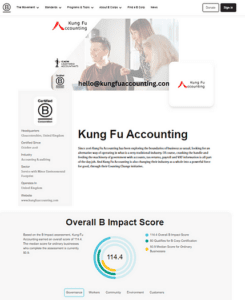These five things will make your year end accounting run as smoothly as possible.
As we enter into a new tax year, here at KFA HQ our minds naturally turn to year end accounts – well, of course they do, we’re accountants after all!
And we’ve been doing this for a while now, so we’ve been through this a few times before.
We’ve seen the good, the bad, and the ugly of year end, and we’ve got a few hints and tips to make the whole process run more smoothly.
For you and for your accountant.
But first; what’s in it for you?

Great question. Why should you bother putting in this effort, after all, year end is the accountant’s job, right?
Well, the year end accounts are only as good as the information used to create them. The old phrase “rubbish in, rubbish out” springs to mind.
If it’s not all in order, sorting the bookkeeping is something that often gets swept into the year end process. Can’t draft accounts without good data.
So it must be done.
But do you really want a chartered accountant to be spending time organising receipts and matching off bank statements?
That’s not where they are most effective, or valuable, to you and your business.
Get the right people doing the right things
The accountant should be spending most of their time thinking about how to optimise your tax position, rather than sorting through your paperwork.
They need to be able to step back to see the bigger picture, and they can’t do that if the bookkeeping foundation is weak.
So if you organise your records in a way that makes the year end work as easy as possible, that means less time for the accountant doing the year end (resulting in a lower bill for you), and / or they can spend more time optimising your tax position, which might mean less tax to pay.
So, can you really afford not to get your books in order?!
Invest up front, save time later
We’ve collected all the most common issues we find when faced with a challenging data set, into five categories.
Spending time working through these things BEFORE you pass everything over to your year end accountant will help hugely, and they will definitely be grateful of the effort you put in.
Watch our 3 minute video here, or read on…!
Thing number 1 – bank (and credit cards, loans, finance, HP, savings etc).
Are all your accounts (including credit cards) properly reconciled, with all transactions matched off and recorded correctly?
If not, do that first of all.
Unsure how to check? If you use Xero, here’s a video to help.
Then, gather together all the statements to prove the year end balances for all accounts including loans, finance, credit cards and savings accounts, as well as the main business account.
We need these statements, even if you have a bank feed into your software. Because sometimes the robots muck things up, and it’s worth having a human who knows how to check.
Thing number 2 – purchase paperwork
If you use Dext (or similar software) to capture your purchase paperwork, move on – as all the information needed should be stored already.
If not, your accountant will want to see evidence of your expenses (machinery, computers, office equipment, legal expenses etc etc). This is to make sure the items are correctly reported in your accounts.
Saved into a shared folder as PDFs would be useful.
But again, if you use a software package that should already be captured.
Thing number 3 – payroll details
If you run your own payroll, you should prepare reports which show the gross to net pay calculations for all your staff, and also the Employer costs, for the accounting year. Also include pensions information, and other deductions like cycle-to-work repayments.
And don’t forget, the accounting year isn’t necessarily the same as the tax year!
Thing number 4 – unpaid sales invoices
Firstly, do you have a list of unpaid sales invoices? Have you checked it? Are there old ones on the system that are unlikely to be paid? Do they need to be written off?
Marking up your list with payment dates if paid after the year end, or chances of being paid, will really help the year end process.
Thing number 5 – unpaid purchase invoices
Similar to number 4 – do you know what purchases are still outstanding at the year end? Have you checked everything? Are there any errors, duplicates or really old items that should be taken off the list?
Again, a few minutes spent on this area will really help your accountant when it comes to the year end accounts.
Conclusion
A happy accountant is a very valuable asset, and you definitely want them, and their expertise, on your side.
So don’t accidentally make their work more difficult than it already is.
To misquote Jerry Maguire, “help them to help you”!
Make it easy for your accountant to find, use and review your information.
Give them everything they need, before they ask for it, so they can easily check and verify the key figures for your accounts.
Now, the above isn’t exhaustive, but if you think about those five key areas, and prepare the necessary supporting information, we’re confident they will thank you for it!
Like this? Why not join our mailing list



